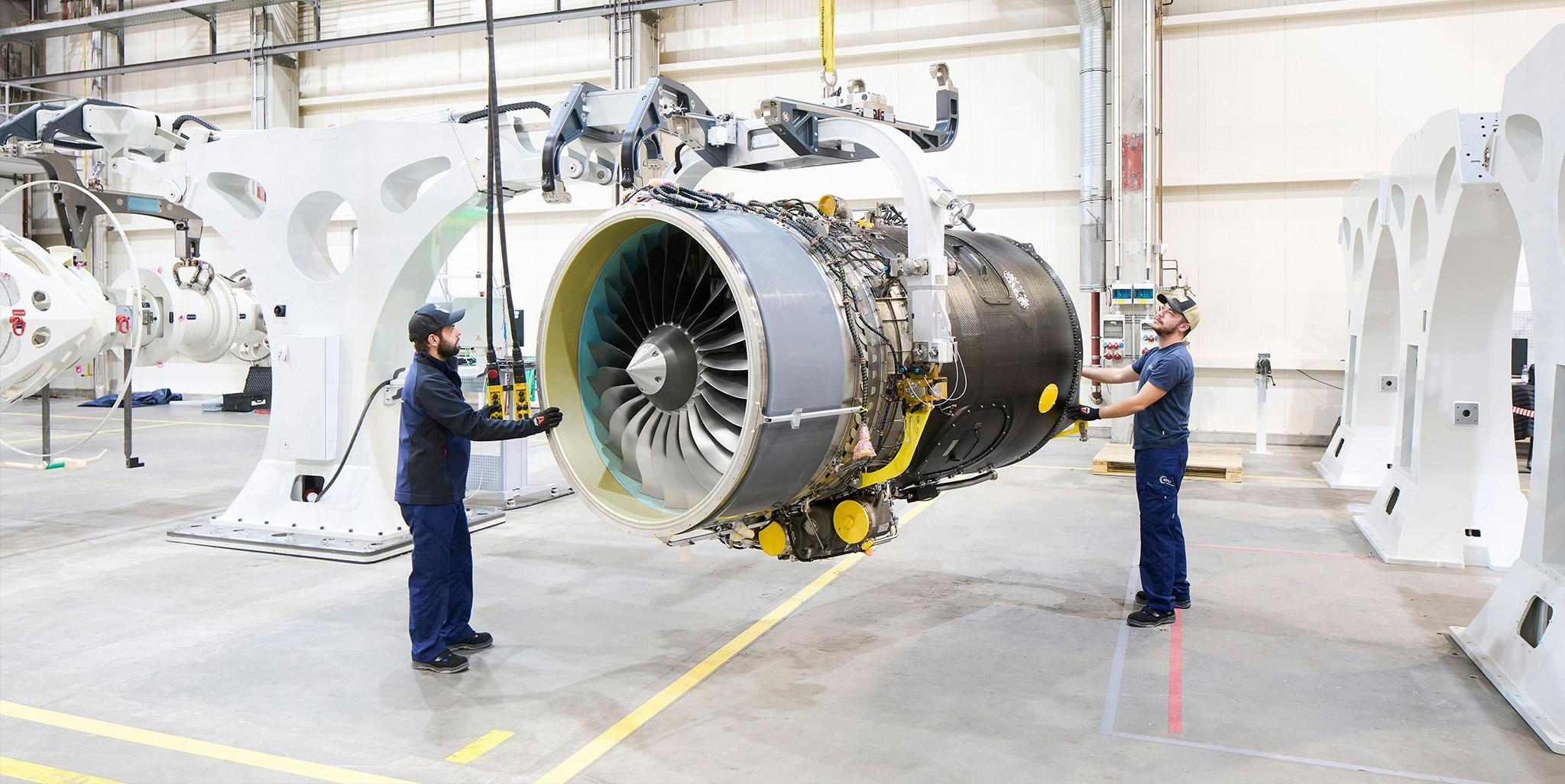エアロジニー — あなたのインテリジェントな副操縦士。
現在のトレンド
Categories
EME Aero Expands Testing Capacity with Second Test Cell

EME Aero Expands Testing Capacity with Second Test Cell
EME Aero, the joint venture between Lufthansa Technik and MTU Aero Engines, has significantly enhanced its maintenance, repair, and overhaul (MRO) capabilities for Pratt & Whitney GTF engines through the inauguration of a second test cell at its Jasionka, Poland facility. This $37 million investment is projected to increase the site’s annual servicing capacity to over 500 engines by 2028, reflecting the growing demand for next-generation aircraft engines.
Growth and Strategic Development
Since commencing operations in December 2019 with services for the PW1100G-JM engine, EME Aero has rapidly expanded its portfolio, incorporating the PW1500G in 2022 and the PW1900G in 2023. The company is on track to service its 1,000th engine, reinforcing its status as a leading specialist in GTF engine overhaul. Michael Schreyögg, chief program officer at MTU Aero Engines, emphasized the significance of this expansion, noting it as a vital step in supporting operators and customers amid a growing in-service fleet. Harald Gloy, chief operations officer at Lufthansa Technik, highlighted the company’s growth and the dedication of its nearly 1,200 engine experts in delivering high-quality service.
The new test cell, completed within 600 days, enhances EME Aero’s position within the GTF MRO network as one of the largest and most advanced disassembly, assembly, and test (DAT) facilities globally. Robert Maślach, CEO, and Anneke Troeller, COO of EME Aero, attributed this milestone to the collaboration and commitment of their joint teams.
Challenges and Market Implications
While the expansion marks a significant advancement, it also introduces operational challenges. EME Aero must address increased costs, ensure compliance with evolving regulatory standards, and integrate advanced technologies effectively. These challenges are compounded by ongoing supply chain complexities and the need for rapid production scale-up, issues that resonate across the aerospace industry, including major players like Boeing.
Market analysts anticipate that EME Aero’s enhanced capabilities may attract greater investor interest, potentially prompting competitors to pursue similar expansions or technological upgrades to maintain competitiveness. The broader test handler market, driven by demands in advanced semiconductor testing, is expected to reach $3.3 billion by 2034, underscoring the strategic importance of cutting-edge testing infrastructure not only in aerospace but also in related high-technology sectors.
With this latest development, EME Aero is strategically positioning itself to meet the increasing demands of the aviation industry while navigating the operational and market complexities associated with growth.

Factors Positioning Airbus for Leadership in 2026

Emirates Unveils Cabin Design for New Boeing 777X

Eighteen Years On, the Airbus A380 Remains Central to a $34 Billion Airline

How a boom in luxury airline seats is slowing down jet deliveries

Navitaire Outage Attributed to Planned Maintenance

Airbus Plans Record Delivery of 870 Aircraft in 2026

DigiYatra Debuts Outside Aviation at India AI Impact Summit

Vietnam Orders Strengthen Boeing’s Commercial Outlook

Airbus Signals Uncertainty Over Future A400M Orders

JobsOhio Awards $2 Million Grant to Hartzell Propeller for Innovation Center
